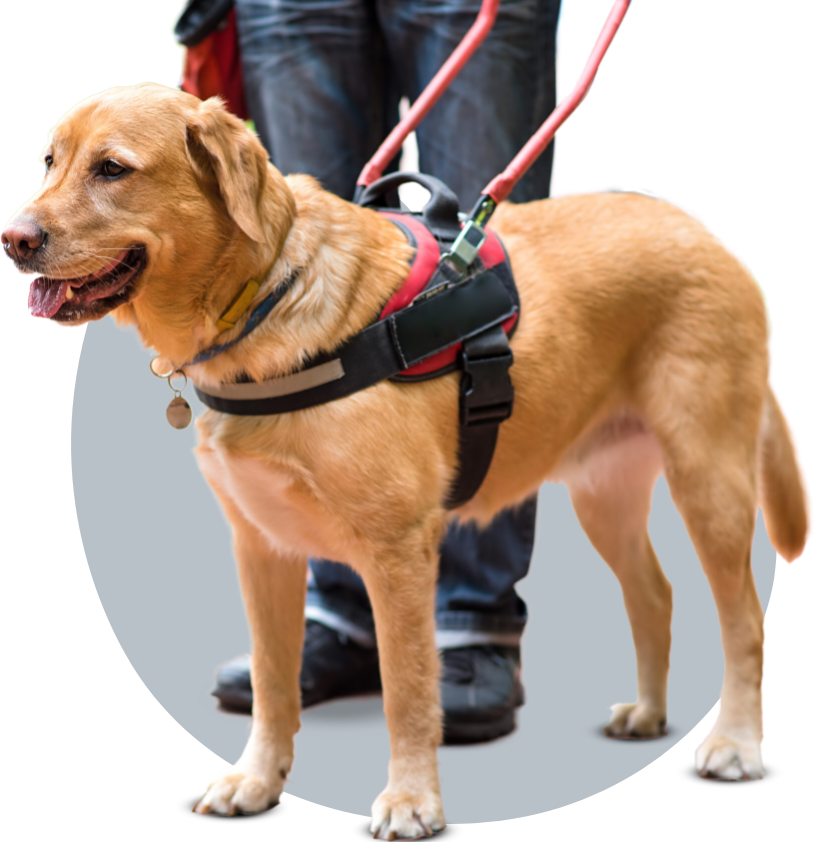The Role of Service Dogs: Enhancing Independence and Well-being

Service dogs play a vital role in our society, providing assistance and support to individuals with disabilities. These remarkable animals undergo rigorous training to perform specialized tasks that enable their handlers to lead more independent and fulfilling lives. In this article, we will explore the world of service dogs, their unique training process, the benefits they offer to individuals with disabilities, and the distinction between service dogs and emotional support animals. Join us as we delve into the incredible ways service dogs enhance independence and well-being.
Understanding Service Dogs and Their Training
Service dogs are highly trained animals that are specifically trained to assist individuals with disabilities. Unlike other types of assistance animals, service dogs are individually trained to perform tasks that mitigate their handler’s disability. The training process begins with careful selection, followed by intensive training sessions tailored to the handler’s specific needs. These incredible animals are taught to perform tasks such as retrieving objects, opening doors, providing balance support, and even detecting medical emergencies. The rigorous training they undergo ensures that they can assist their handlers with utmost precision and reliability.
The Benefits of Service Dogs for Individuals with Disabilities
The impact of service dogs on the lives of individuals with disabilities is profound. These amazing animals offer a range of benefits that extend beyond physical assistance. For individuals with mobility impairments, service dogs provide enhanced mobility and independence. They can retrieve dropped items, assist with dressing and undressing, and even pull a wheelchair. Service dogs also offer emotional support and provide a sense of companionship, alleviating feelings of isolation and loneliness. Their presence can help individuals manage stress, anxiety, and depression, promoting overall psychological well-being. Furthermore, service dogs facilitate social interactions, breaking down barriers and promoting community integration for their handlers.
Service Dogs in Specific Contexts
Service dogs are trained to meet the unique needs of individuals with various disabilities. In the context of visual impairments, guide dogs play a crucial role. These highly trained canines assist individuals with navigation, avoiding obstacles, and safely crossing streets. They provide an unmatched level of independence for individuals with visual impairments, allowing them to navigate the world with confidence. For individuals with mobility impairments, service dogs are trained to perform tasks such as retrieving dropped items, opening doors, and assisting with balance. These tasks empower individuals to overcome physical challenges and engage in daily activities with greater ease. Additionally, service dogs can be trained to assist individuals with psychiatric disabilities, providing comfort during panic attacks, interrupting harmful behaviors, and creating a calming presence.

The Distinction Between Emotional Support Animals and Service Dogs
While service dogs are trained to perform specific tasks to assist individuals with disabilities, emotional support animals (ESAs) play a different role. ESAs provide companionship and emotional support to individuals with mental health conditions, but they are not trained to perform specific tasks. Unlike service dogs, ESAs do not possess public access rights and are primarily allowed in housing and transportation settings under certain circumstances. It is essential to understand the distinction between these two types of assistance animals to ensure proper understanding and support for individuals who require their companionship.
Conclusion:
Service dogs are extraordinary creatures that positively impact the lives of individuals with disabilities. Their specialized training equips them to perform a wide array of tasks, promoting independence and enhancing well-being. From guiding individuals with visual impairments to providing mobility assistance and emotional support, service dogs are true heroes. It is crucial to recognize their unique role and the profound difference they make in the lives of their handlers. Let us appreciate and support these amazing service dogs as they continue to transform lives and pave the way for a more inclusive society.














































































